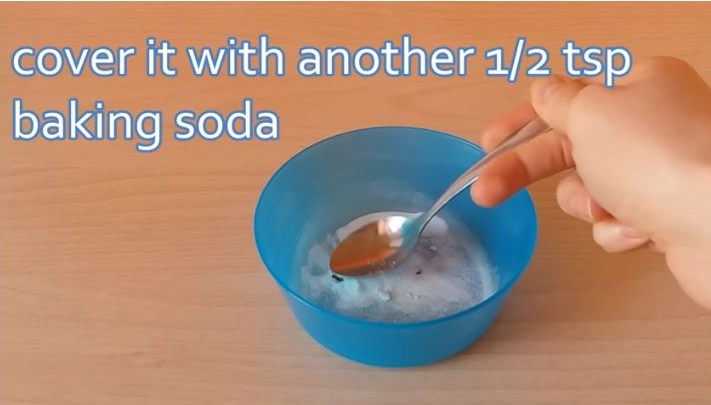YouTube/Adelina Nechifor
Brilio.net - House keys that have been used for a long time usually become rusty. Reporting from www.onassisshardware.com, this is caused by moisture in the air and water hitting the basic material of the key, namely metal.
If left untreated, rusty keys will not be able to be used optimally . The reason is, over time the key will become brittle and end up being damaged.
But there's no need to worry, it turns out rusty keys can still be cleaned. The way to do this is to simply soak the key in the vinegar solution for some time. The acid content in vinegar is considered effective in removing rust stains on the surface of keys.
For maximum cleanliness, you can also add other cleaning agents. Just like what YouTube user Adelina Nechifor did. In his video upload, this netizen appears to be relying on kitchen ingredients to clean his house keys which are already rusty.
This trick for cleaning rusty keys is effective and makes them shiny by adding 1 kitchen ingredient.
Reported by BrilioFood from YouTube Adelina Nechifor on Monday (27/5), one kitchen ingredient that was added was baking soda. First, put 1/2 tsp baking soda in a bowl. Then put the key on it.

photo: YouTube/Adelina Nechifor
After that, cover the key with additional 1/2 teaspoon baking soda. So, the amount of baking soda needed is 1 tsp. If so, then pour the table vinegar into a bowl as a cleaning mixture.
"Let it sit for 10 minutes," said the video owner.

photo: YouTube/Adelina Nechifor
After letting it sit for 10 minutes, add the vinegar. For maximum cleanliness, leave the key soaked in the cleaning solution overnight.

photo: YouTube/Adelina Nechifor
Rub the keys immediately after soaking them overnight. Without expending extra effort, the rust stains on the keys immediately peeled off by themselves.

photo: YouTube/Adelina Nechifor
Finally, rinse the key under running water. The key looks shiny and like new again.

photo: YouTube/Adelina Nechifor
There are no rust spots left at all.
Why do house keys rust?
House keys can rust due to exposure to moisture and air containing oxygen. Rust on keys occurs due to an oxidation process on the metal surface of the key, especially if the key is made of steel or iron which is susceptible to corrosion. Factors such as exposure to water, air humidity, and other contaminants can speed up the rust process. If not maintained properly or lubricated regularly, house keys can rust and become difficult to use.
The content of baking soda and table vinegar can remove rust stains on house keys.
Baking soda and table vinegar are ingredients that are often used to clean rust stains on various metal surfaces, including house keys.
How to remove rust stains with baking soda and vinegar is as follows.
1. Mix baking soda with a little water until it forms a thick paste.
2. Apply the baking soda paste to the area affected by rust stains on the house key.
3. Leave the baking soda paste for a few moments so it can penetrate the rust stain.
4. After that, dampen a piece of cloth or sponge with table vinegar.
5. Rub a cloth or sponge dampened with table vinegar on the area that has been smeared with baking soda paste.
6. Repeat the scrubbing process with table vinegar until the rust stains are removed.
7. After the rust stains are gone, rinse the house key with clean water and dry with a clean cloth.
The combination of baking soda and table vinegar has abrasive and acidic properties, so it is effective in removing rust stains on metal surfaces. However, be sure to test first on a small section of the house lock to ensure that the substances do not damage the surface or finish of the lock.
(brl/lut)